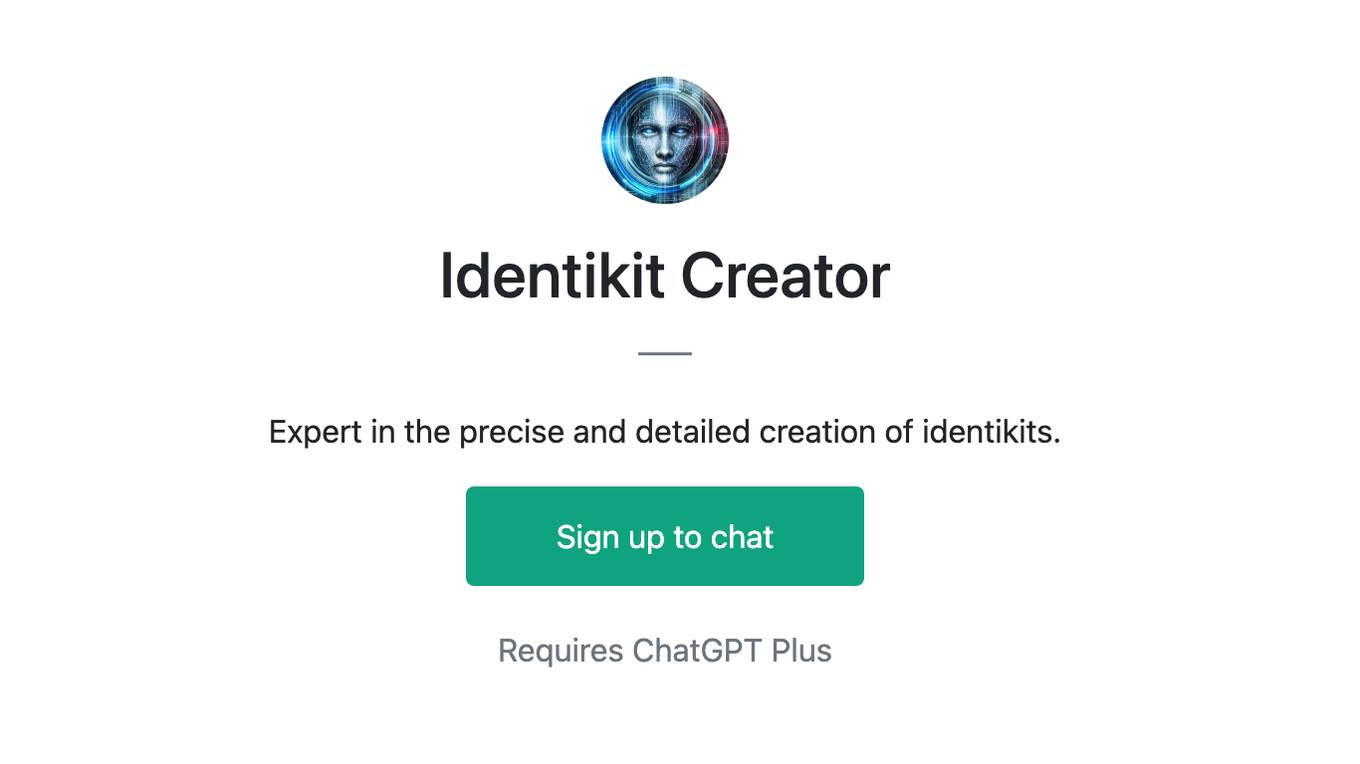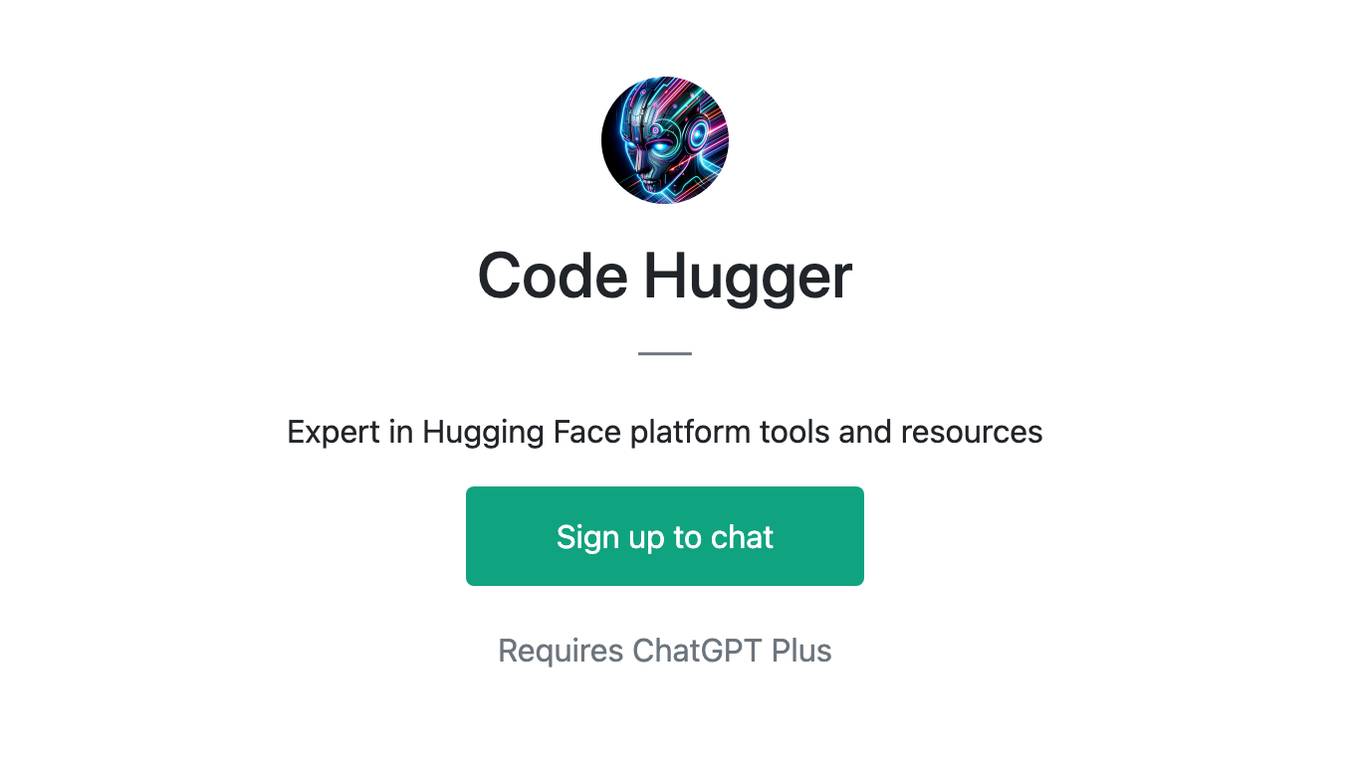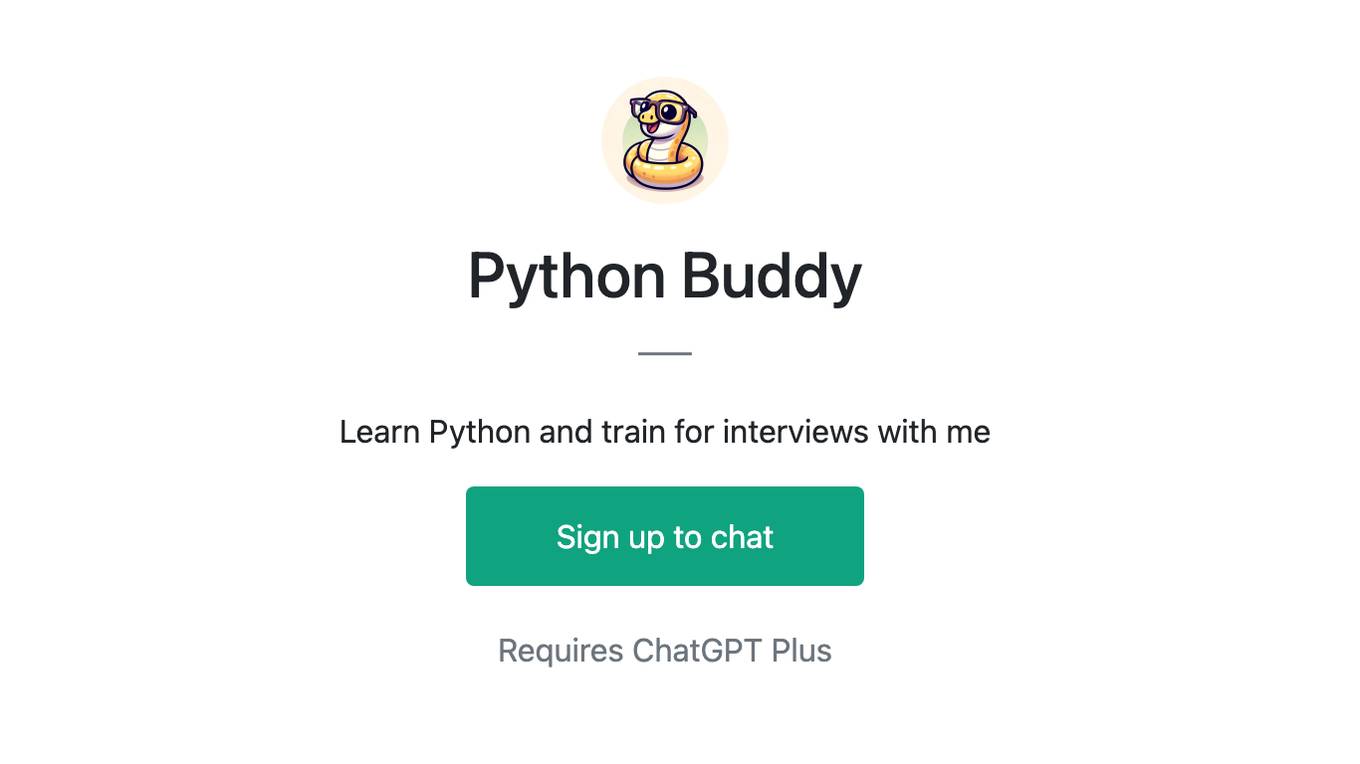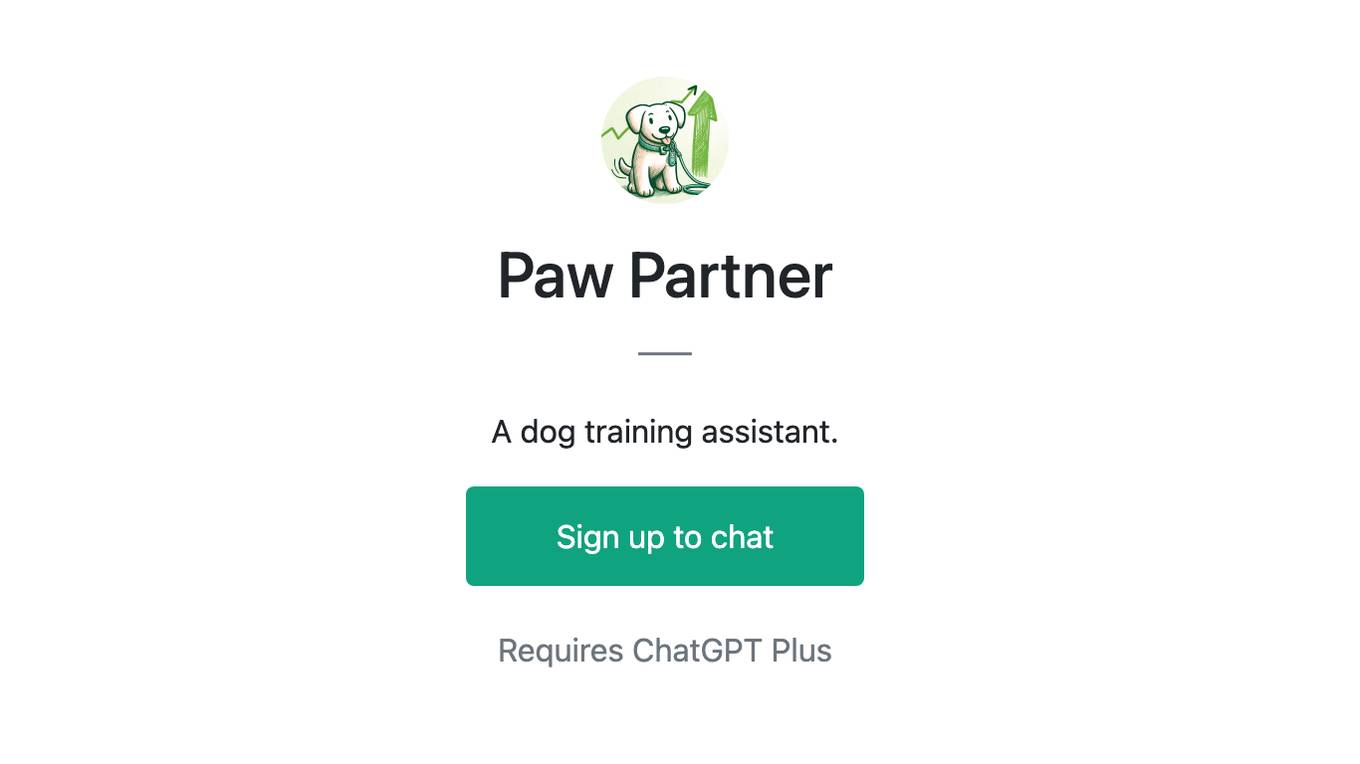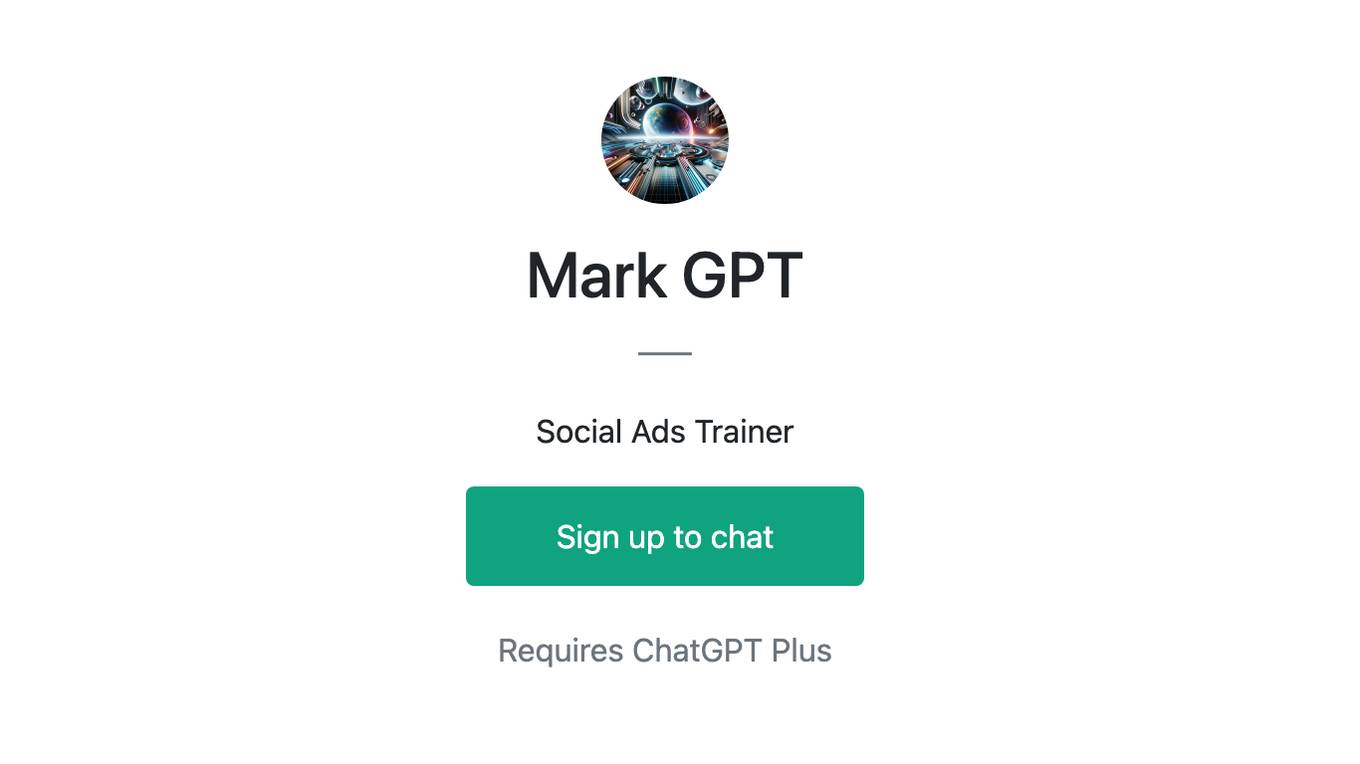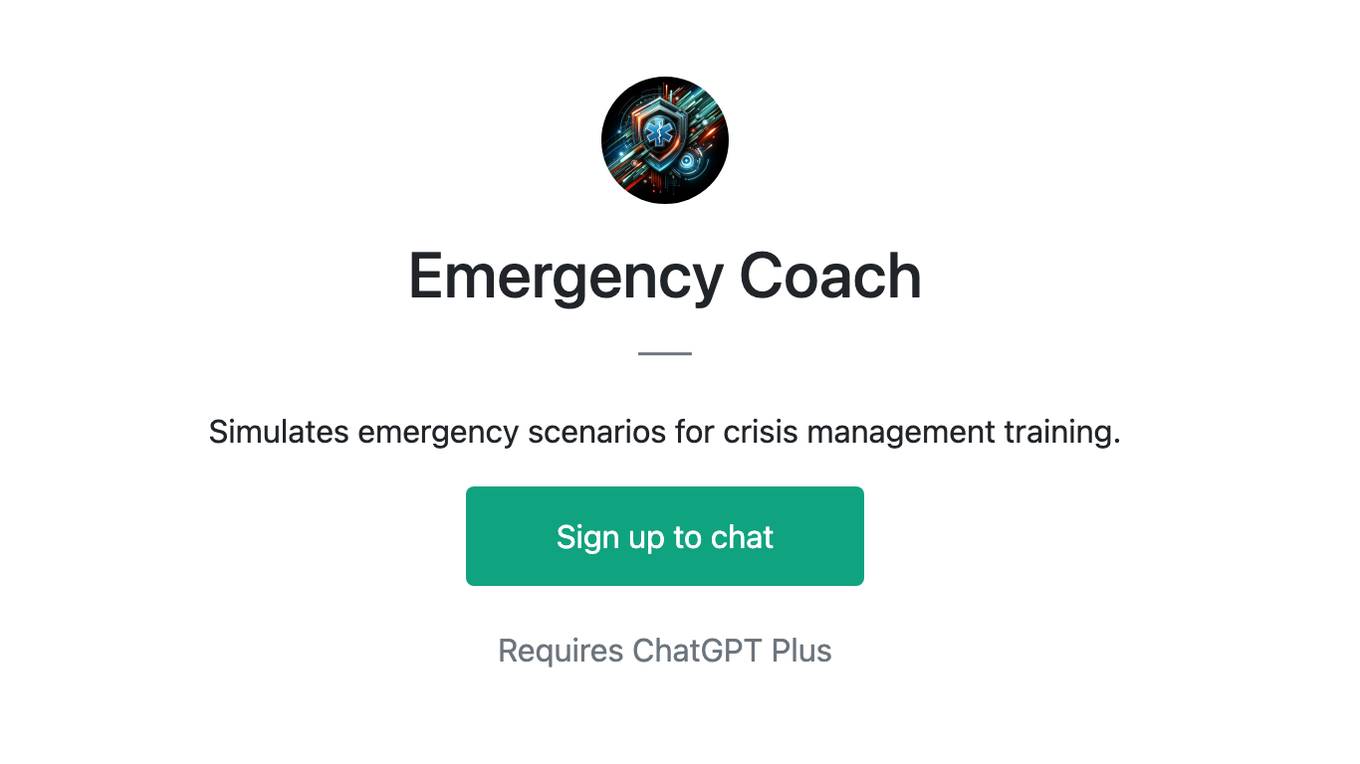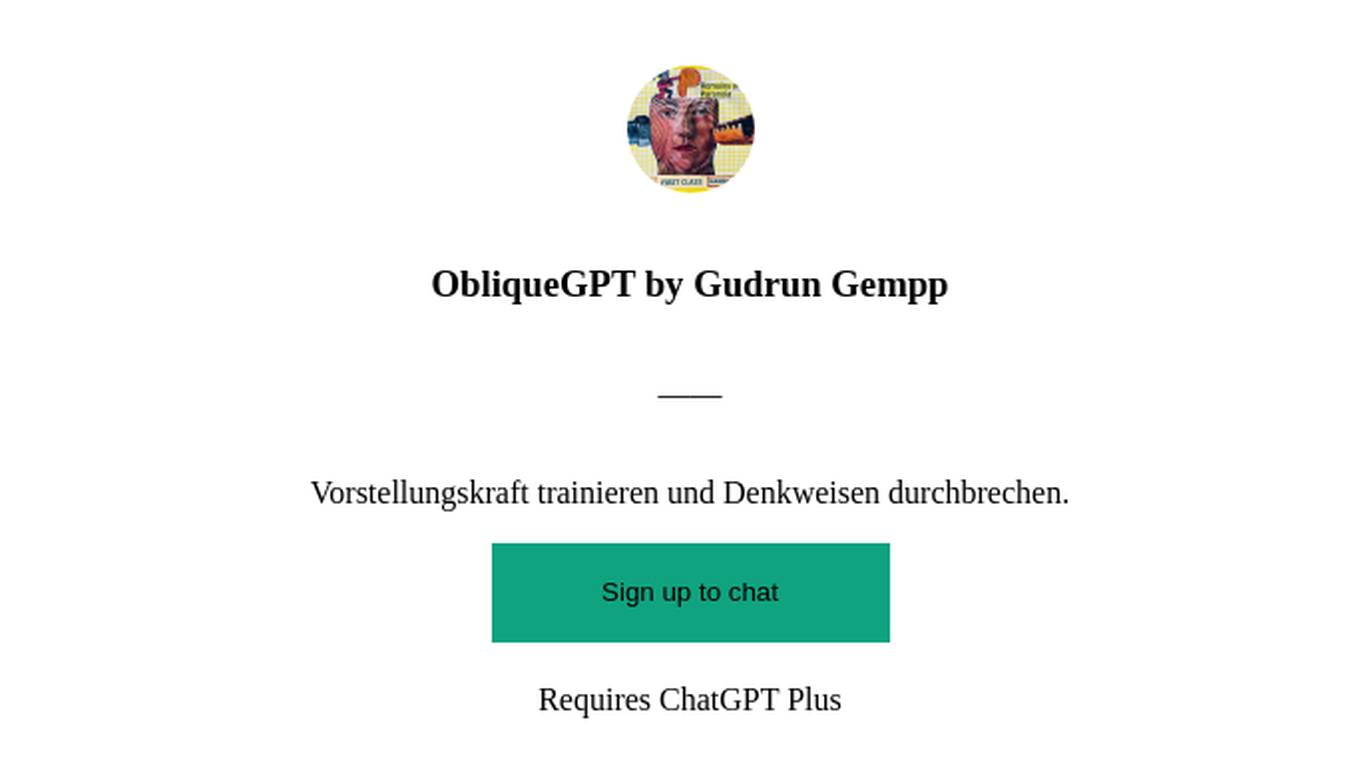Best AI tools for< Train Face Recognition Models >
20 - AI tool Sites
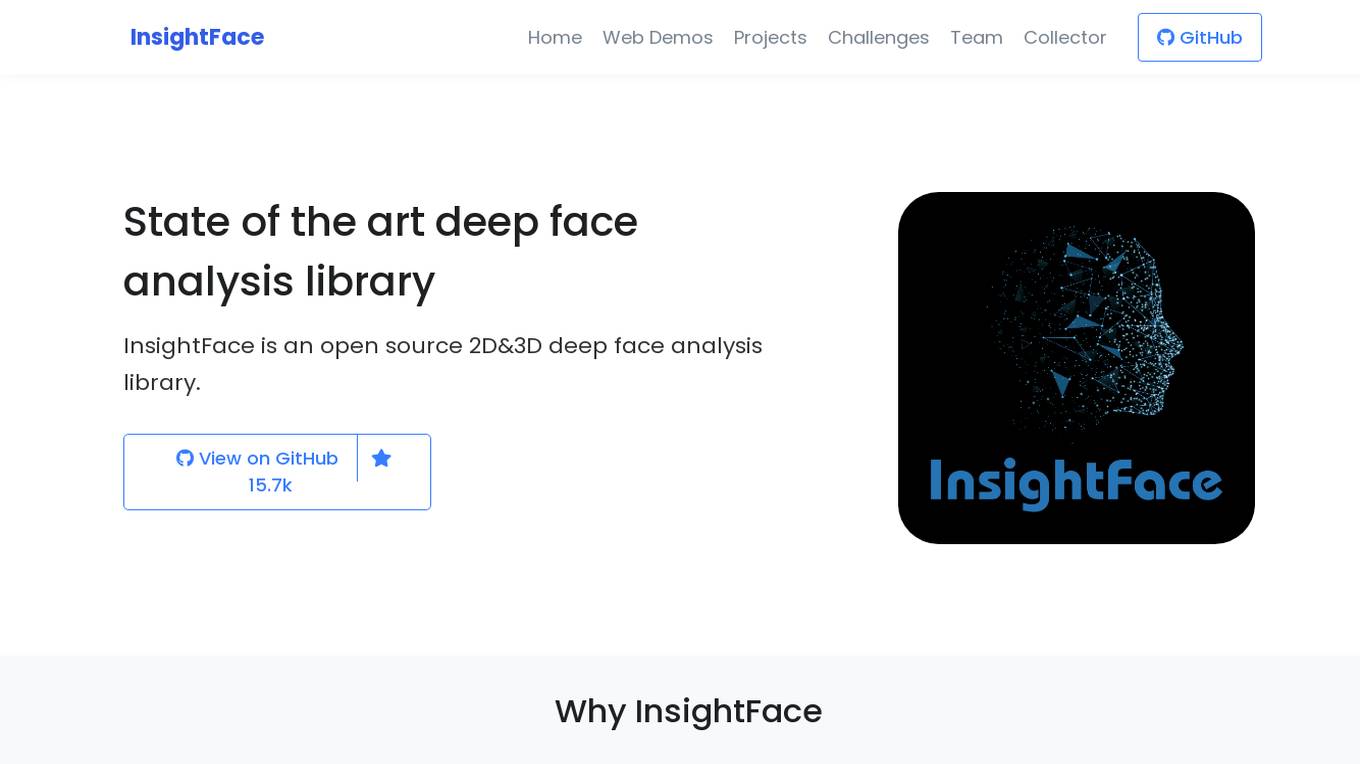
InsightFace
InsightFace is an open-source deep face analysis library that provides a rich variety of state-of-the-art algorithms for face recognition, detection, and alignment. It is designed to be efficient for both training and deployment, making it suitable for research institutions and industrial organizations. InsightFace has achieved top rankings in various challenges and competitions, including the ECCV 2022 WCPA Challenge, NIST-FRVT 1:1 VISA, and WIDER Face Detection Challenge 2019.
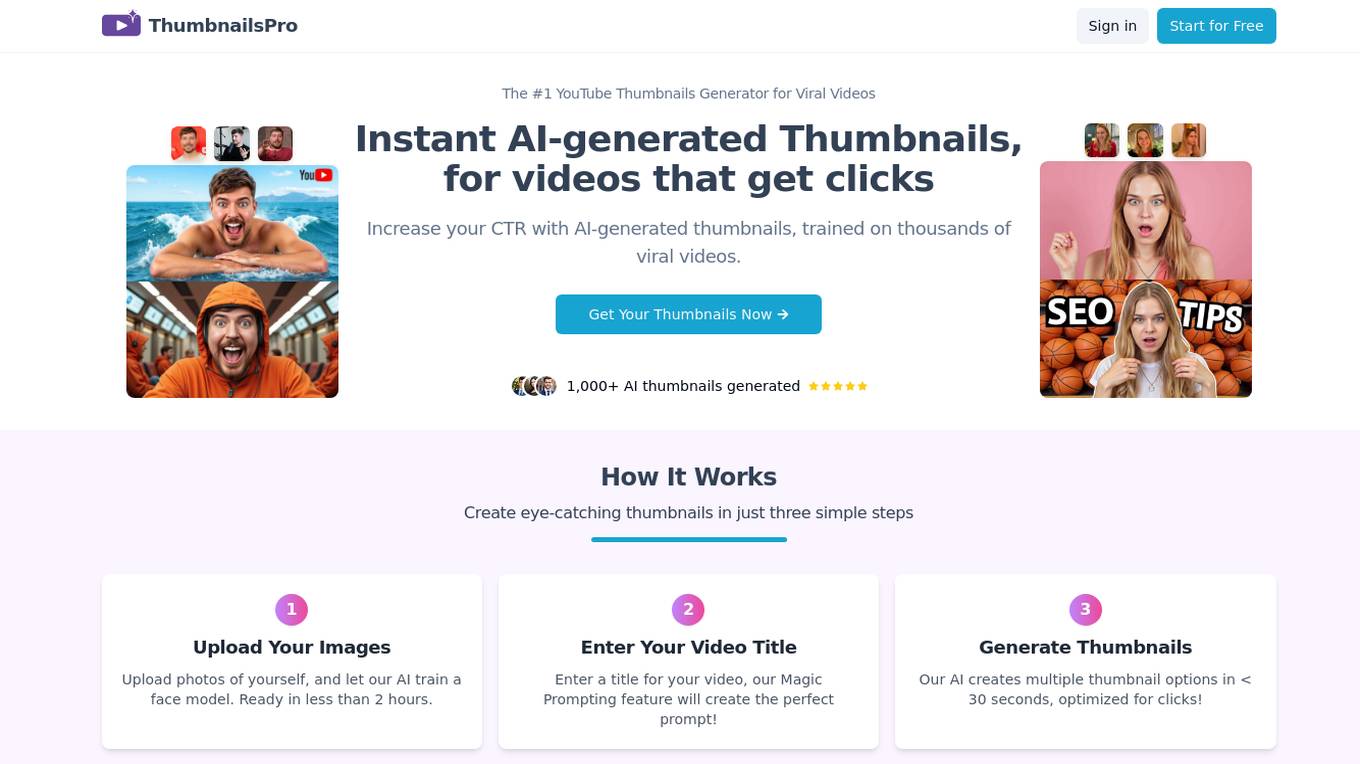
ThumbnailsPro
ThumbnailsPro is the #1 YouTube Thumbnails Generator for Viral Videos, offering instant AI-generated thumbnails to increase click-through rates. The AI is trained on thousands of viral videos to ensure optimized thumbnail creation. Users can upload images, enter video titles, and generate multiple thumbnail options in under 30 seconds. With affordable subscription plans, full ownership rights, and a user-friendly interface, ThumbnailsPro is designed for YouTube success.

Genice
Genice is an online face swap tool that allows users to effortlessly swap faces in videos or images. With its advanced technology, Genice can generate realistic results by incorporating multiple face images, delivering superior quality compared to the method of using just a single face image. Users can train their custom model with just about 10 images and endlessly generate their dream photos or videos. Genice also offers a variety of features such as changing faces in any video or image effortlessly, generating images through style selection, and providing free credits to new sign-up users.
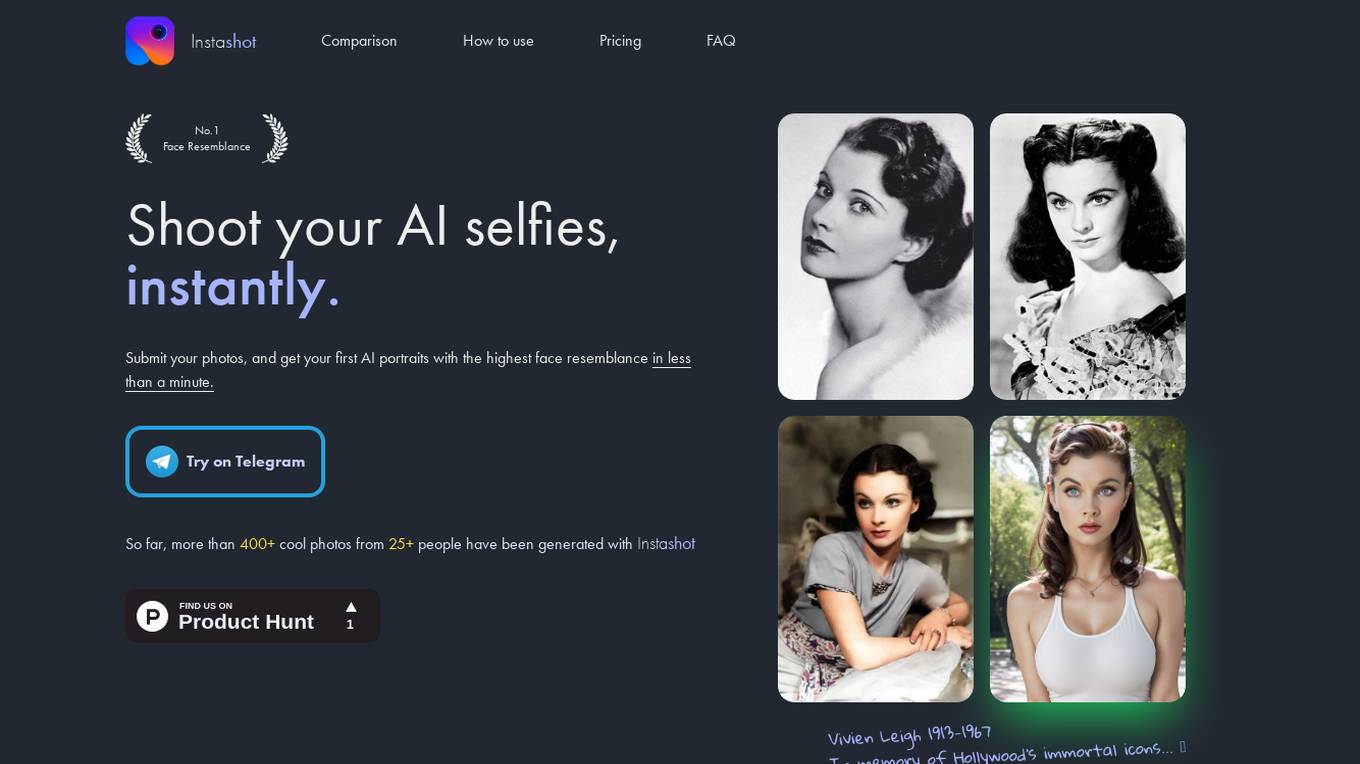
Instashot
Instashot is an AI application that allows users to generate AI portraits with the highest face resemblance in less than a minute. Users can submit their photos to train a custom AI model, which can then be used to generate portraits with unique prompts. The application offers different pricing tiers with varying features and benefits, making it accessible to a wide range of users. Instashot utilizes Stable Diffusion AI technologies to create portraits that best describe the user, ensuring high-quality results. The application is user-friendly, efficient, and provides a fun way to explore AI-generated art.
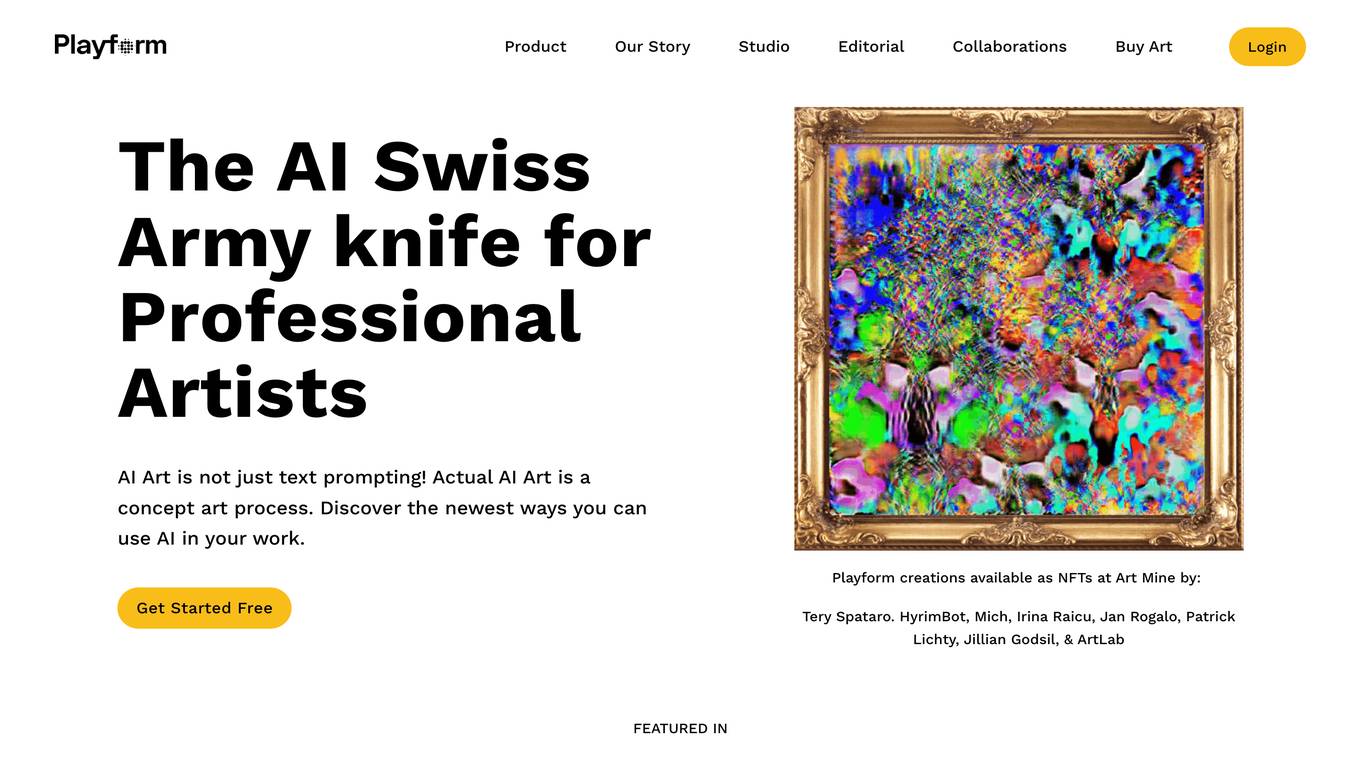
Playform
Playform is an AI art generator platform that offers a suite of AI tools for artists, creators, and curious minds. It provides intuitive tools for sketching, face swapping, image generation, and model training. Playform allows users to create visual art in various styles and scales, all while ensuring privacy and creative control. The platform caters to professional artists, content creators, and casual users looking to explore visual AI without prompt fatigue.

Tavus
Tavus is an AI tool that offers digital twin APIs for video generation and conversational video interfaces. It provides developers with cutting-edge AI technology to create immersive video experiences using AI-generated digital twins. Tavus' Phoenix model enables the generation of realistic digital replicas with natural face movements and expressions. The platform also supports rapid training, instant inference, and multi-language capabilities. With a developer-first approach, Tavus focuses on security, trust, and user experience, offering features like dubbing APIs and automated content moderation. The tool is praised for its speed of development cycles, high-quality AI video, and exceptional customer service.
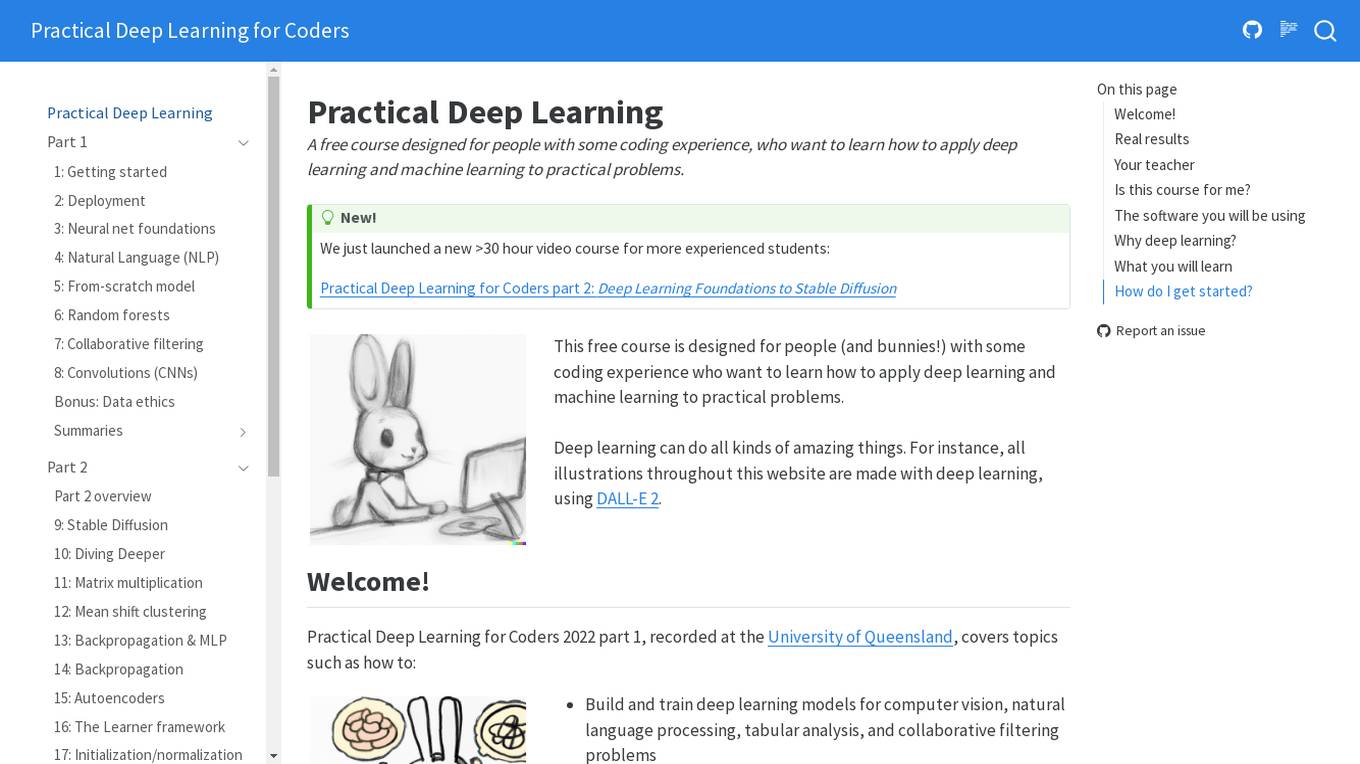
Practical Deep Learning for Coders
Practical Deep Learning for Coders is a free course designed for individuals with some coding experience who want to learn how to apply deep learning and machine learning to practical problems. The course covers topics such as building and training deep learning models for computer vision, natural language processing, tabular analysis, and collaborative filtering problems. It is based on a 5-star rated book and does not require any special hardware or software. The course is led by Jeremy Howard, a renowned expert in machine learning and the President and Chief Scientist of Kaggle.
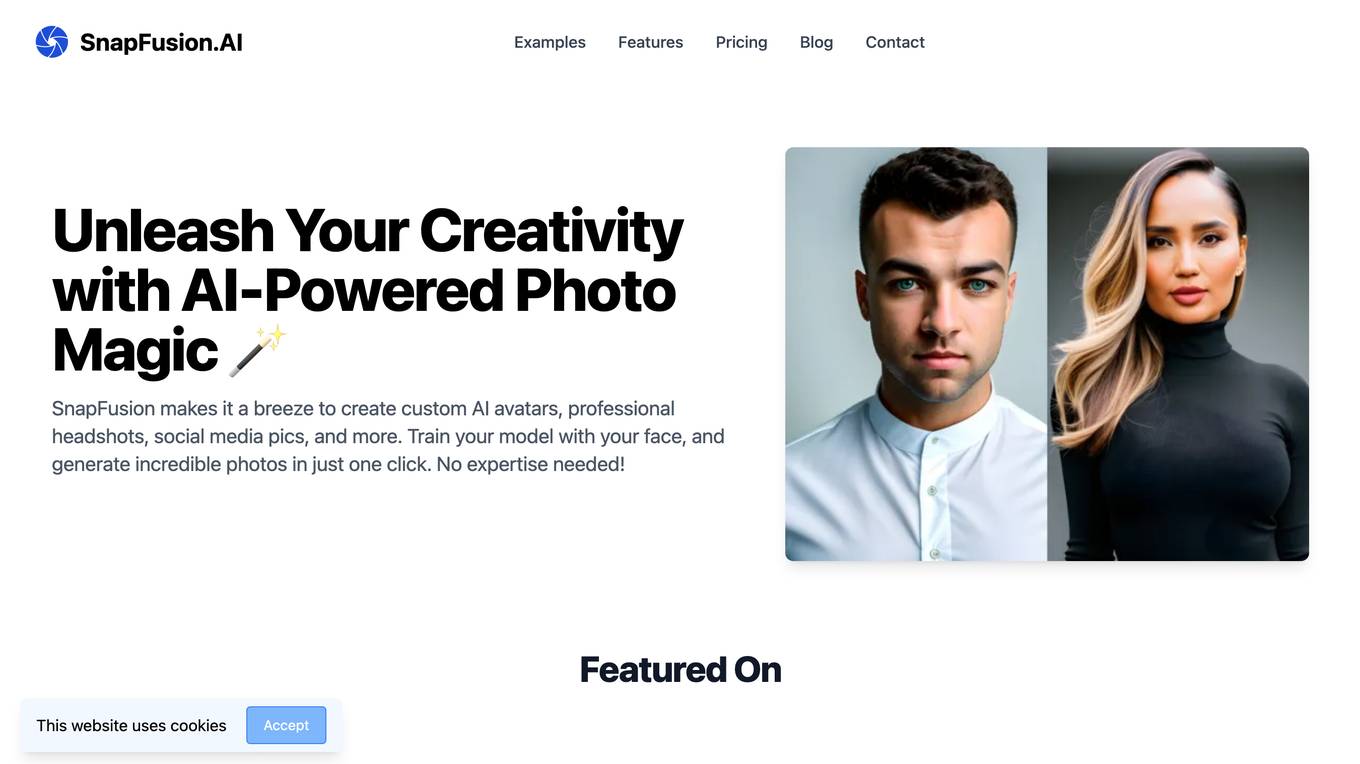
SnapFusion.AI
SnapFusion.AI is an AI-powered photo editing tool that allows users to easily create custom AI avatars, professional headshots, social media pics, and more. Users can train their model with their own face and generate high-quality photos in just one click, without requiring any expertise in AI. The tool offers a user-friendly interface, diverse photo styles, high-quality image output, and flexible pricing plans to cater to various creative needs. SnapFusion prioritizes user privacy and data security, ensuring a safe and private editing experience.

IBM Watsonx
IBM Watsonx is an enterprise studio for AI builders. It provides a platform to train, validate, tune, and deploy AI models quickly and efficiently. With Watsonx, users can access a library of pre-trained AI models, build their own models, and deploy them to the cloud or on-premises. Watsonx also offers a range of tools and services to help users manage and monitor their AI models.

Outlier AI
Outlier AI is a platform that connects subject matter experts to help build the world's most advanced Generative AI. It allows experts to work on various projects from generating training data to evaluating model performance. The platform offers flexibility, allowing contributors to work from home on their own schedule. Outlier AI aims to redefine how AI learns by leveraging the expertise of domain specialists across different fields.
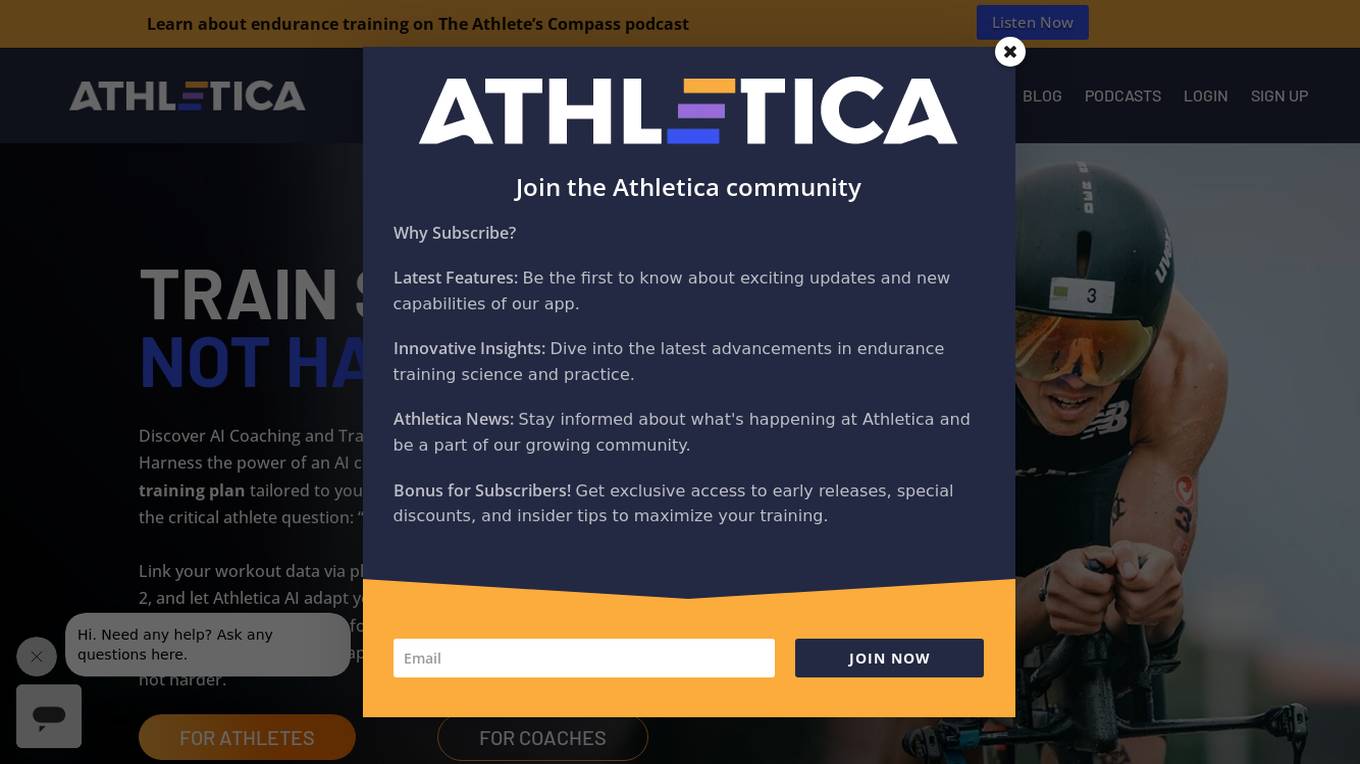
Athletica AI
Athletica AI is an AI-powered athletic training and personalized fitness application that offers tailored coaching and training plans for various sports like cycling, running, duathlon, triathlon, and rowing. It adapts to individual fitness levels, abilities, and availability, providing daily step-by-step training plans and comprehensive session analyses. Athletica AI integrates seamlessly with workout data from platforms like Garmin, Strava, and Concept 2 to craft personalized training plans and workouts. The application aims to help athletes train smarter, not harder, by leveraging the power of AI to optimize performance and achieve fitness goals.

Backend.AI
Backend.AI is an enterprise-scale cluster backend for AI frameworks that offers scalability, GPU virtualization, HPC optimization, and DGX-Ready software products. It provides a fast and efficient way to build, train, and serve AI models of any type and size, with flexible infrastructure options. Backend.AI aims to optimize backend resources, reduce costs, and simplify deployment for AI developers and researchers. The platform integrates seamlessly with existing tools and offers fractional GPU usage and pay-as-you-play model to maximize resource utilization.
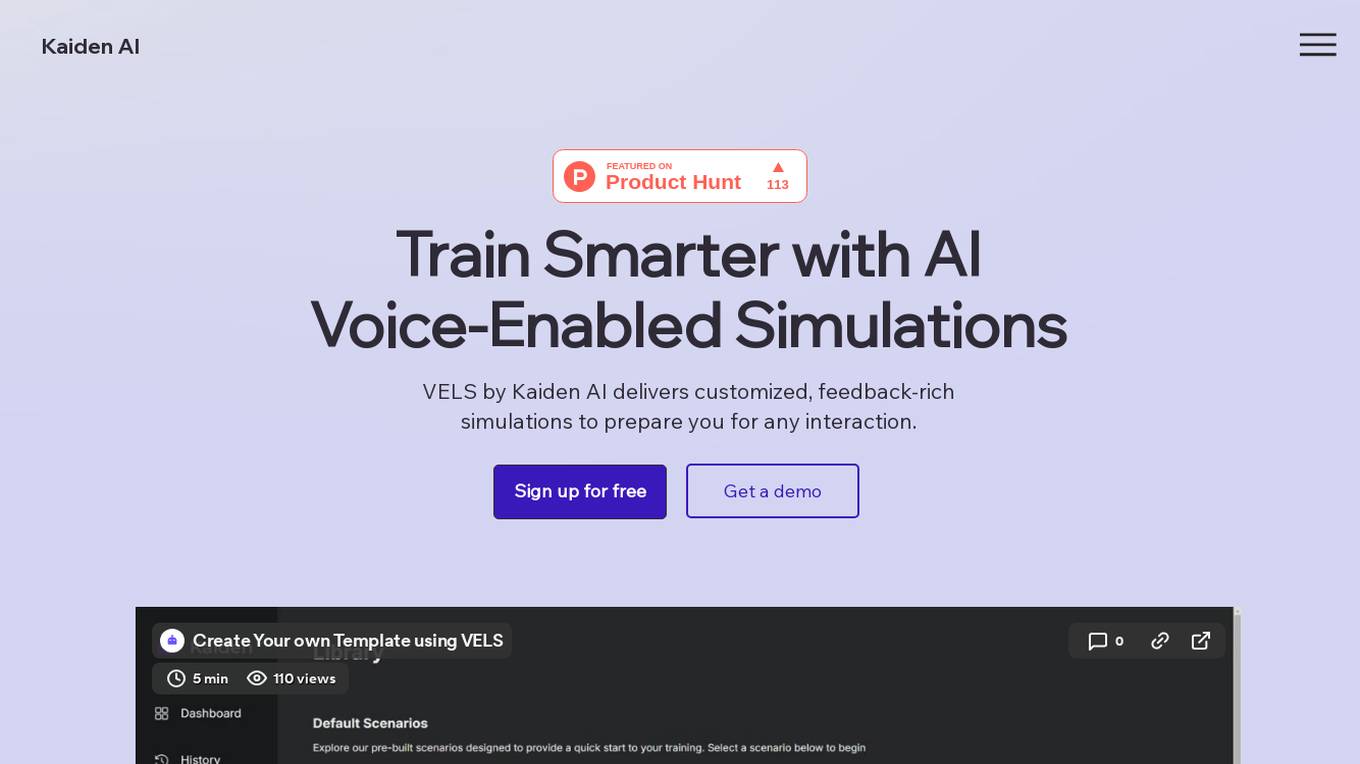
Kaiden AI
Kaiden AI is an AI-powered training platform that offers personalized, immersive simulations to enhance skills and performance across various industries and roles. It provides feedback-rich scenarios, voice-enabled interactions, and detailed performance insights. Users can create custom training scenarios, engage with AI personas, and receive real-time feedback to improve communication skills. Kaiden AI aims to revolutionize training solutions by combining AI technology with real-world practice.
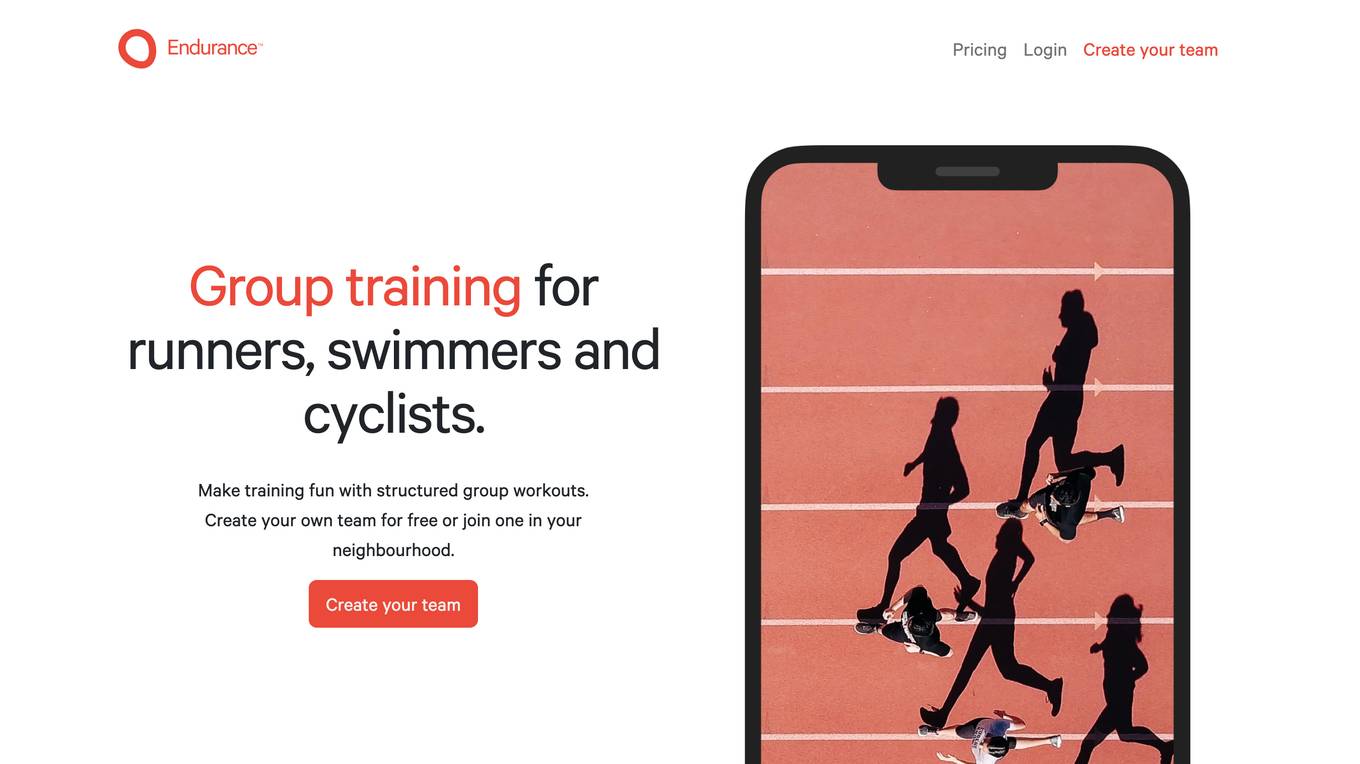
Endurance
Endurance is a platform designed for runners, swimmers, and cyclists to engage in group training activities with friends or local communities. Users can create or join teams, share structured workouts, and benefit from collective motivation and accountability. The platform aims to make training fun and effective by leveraging the power of group workouts and social connections.
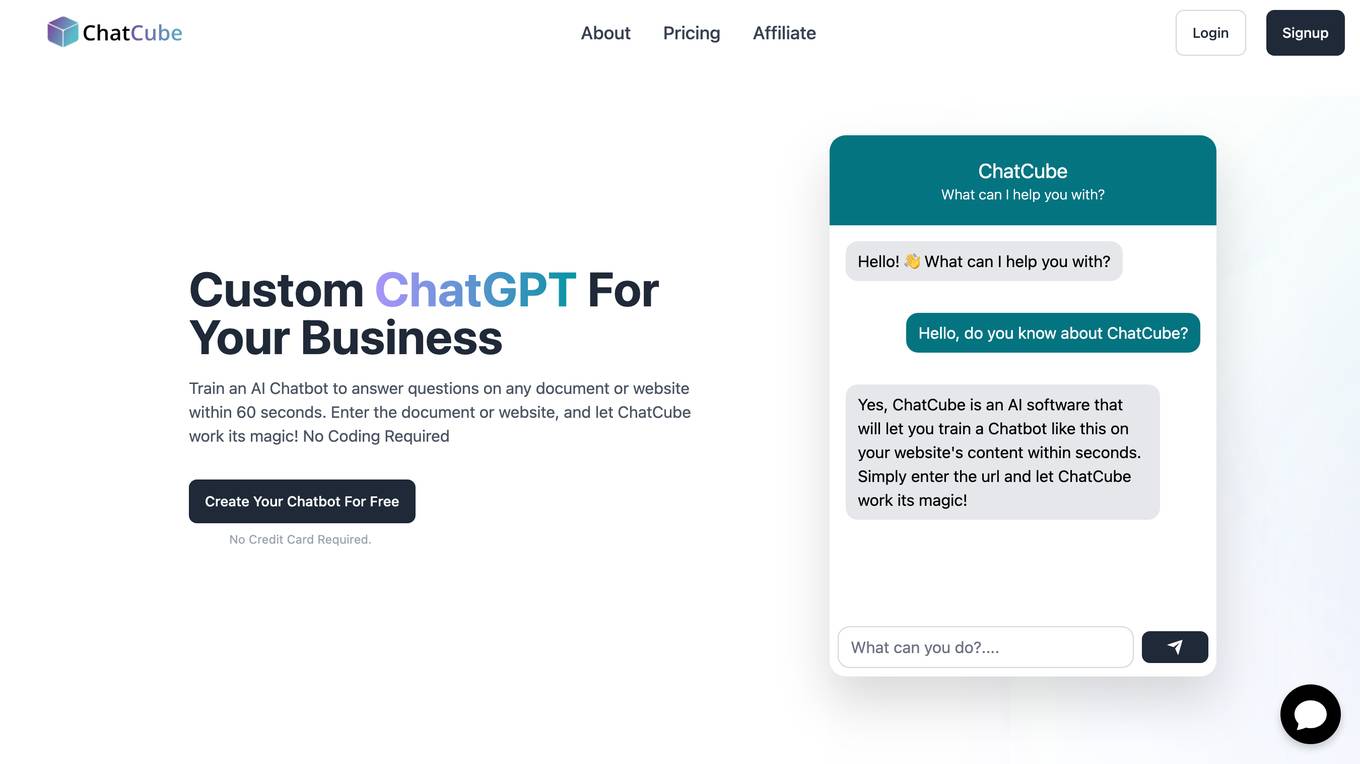
ChatCube
ChatCube is an AI-powered chatbot maker that allows users to create chatbots for their websites without coding. It uses advanced AI technology to train chatbots on any document or website within 60 seconds. ChatCube offers a range of features, including a user-friendly visual editor, lightning-fast integration, fine-tuning on specific data sources, data encryption and security, and customizable chatbots. By leveraging the power of AI, ChatCube helps businesses improve customer support efficiency and reduce support ticket reductions by up to 28%.
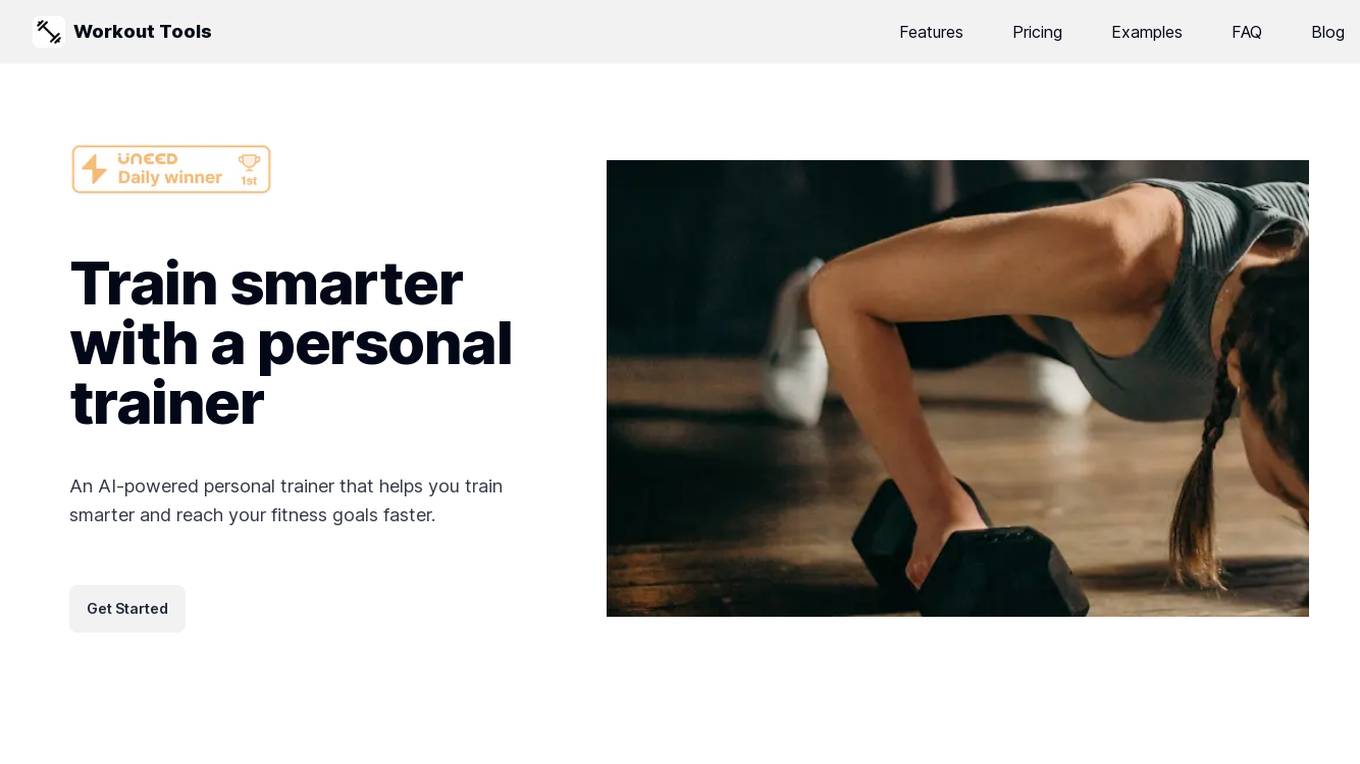
Workout Tools
Workout Tools is an AI-powered personal trainer that helps you train smarter and reach your fitness goals faster. It takes into account different parameters, such as your physics, the type of workout you're interested in, your available equipment, and comes up with a suggested workout. Don't like the workout? Just generate another one. It's that simple.
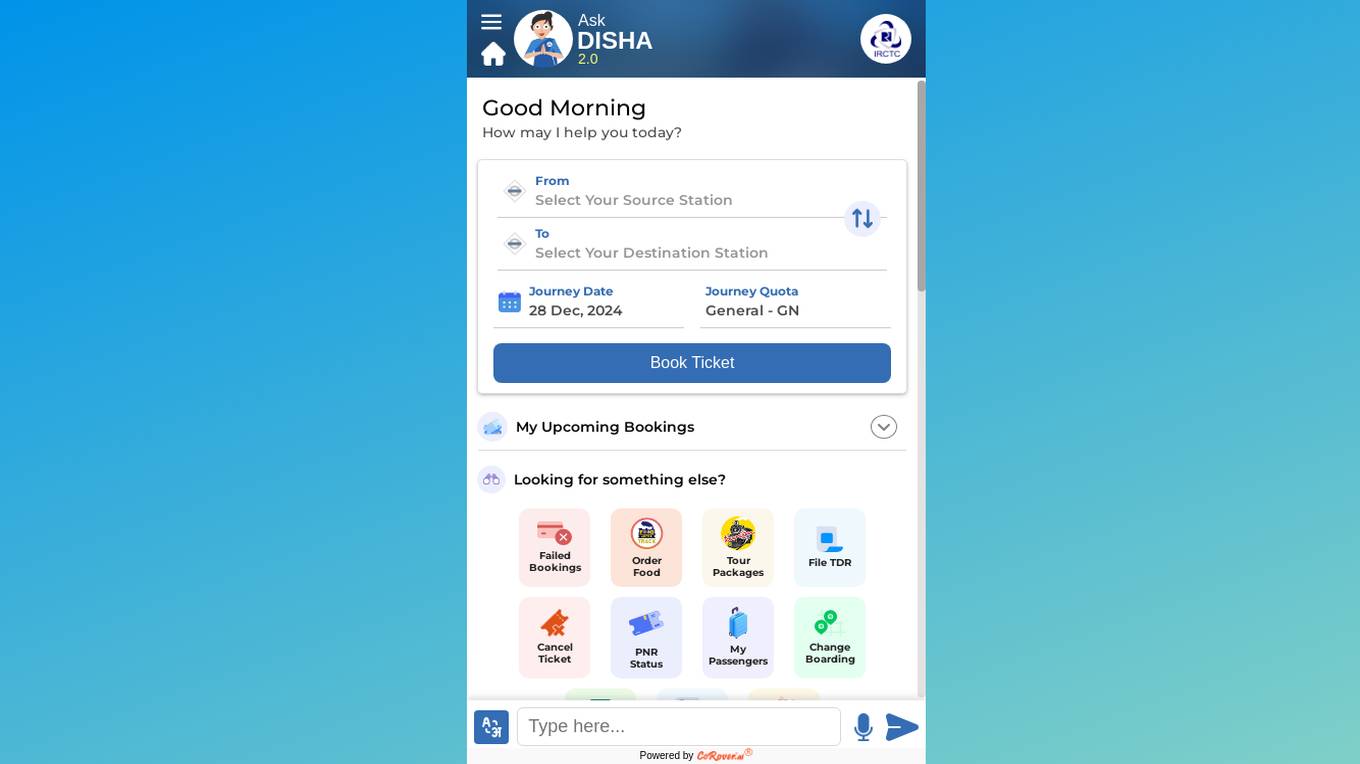
CoRover.ai
CoRover.ai is an AI-powered chatbot designed to help users book train tickets seamlessly through conversation. The chatbot, named AskDISHA, is integrated with the IRCTC platform, allowing users to inquire about train schedules, ticket availability, and make bookings effortlessly. CoRover.ai leverages artificial intelligence to provide personalized assistance and streamline the ticket booking process for users, enhancing their overall experience.
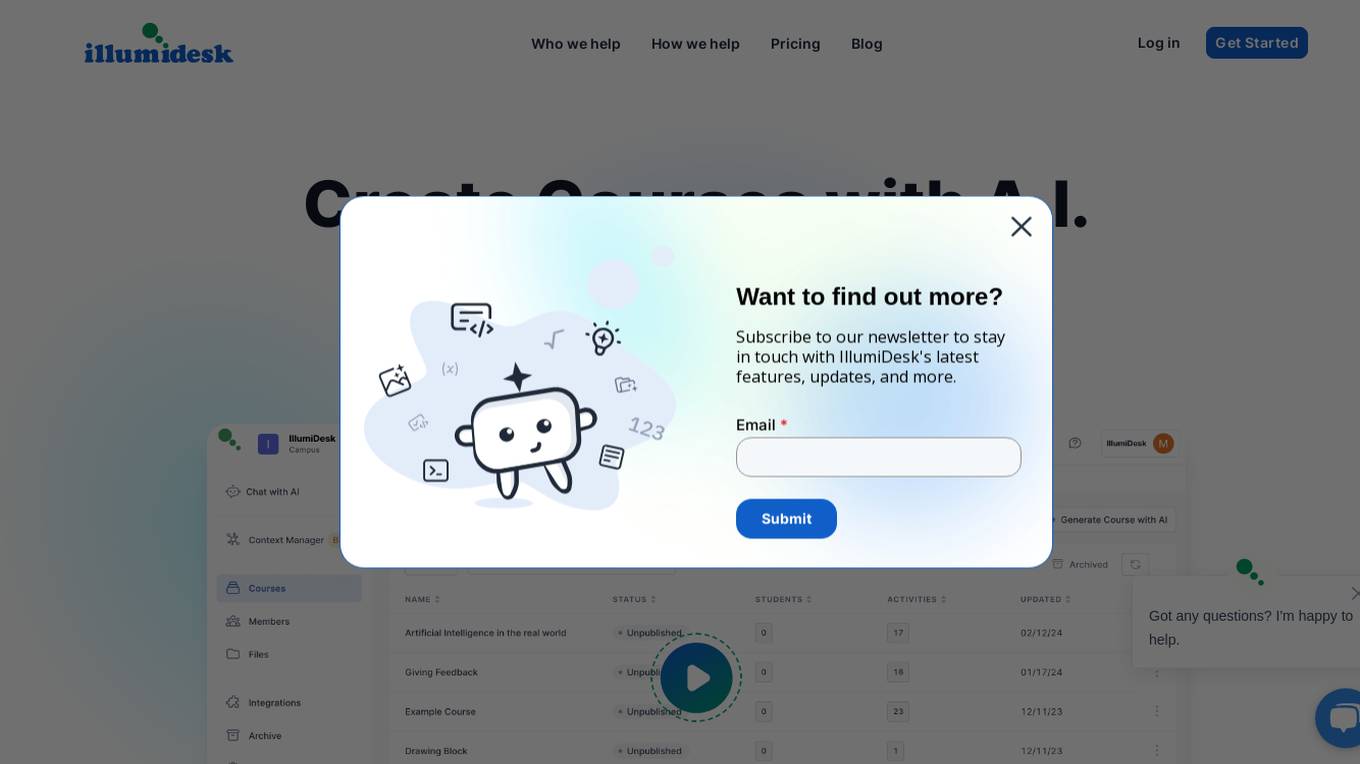
IllumiDesk
IllumiDesk is a generative AI platform for instructors and content developers that helps teams create and monetize content tailored 10X faster. With IllumiDesk, you can automate grading tasks, collaborate with your learners, create awesome content at the speed of AI, and integrate with the services you know and love. IllumiDesk's AI will help you create, maintain, and structure your content into interactive lessons. You can also leverage IllumiDesk's flexible integration options using the RESTful API and/or LTI v1.3 to leverage existing content and flows. IllumiDesk is trusted by training agencies and universities around the world.
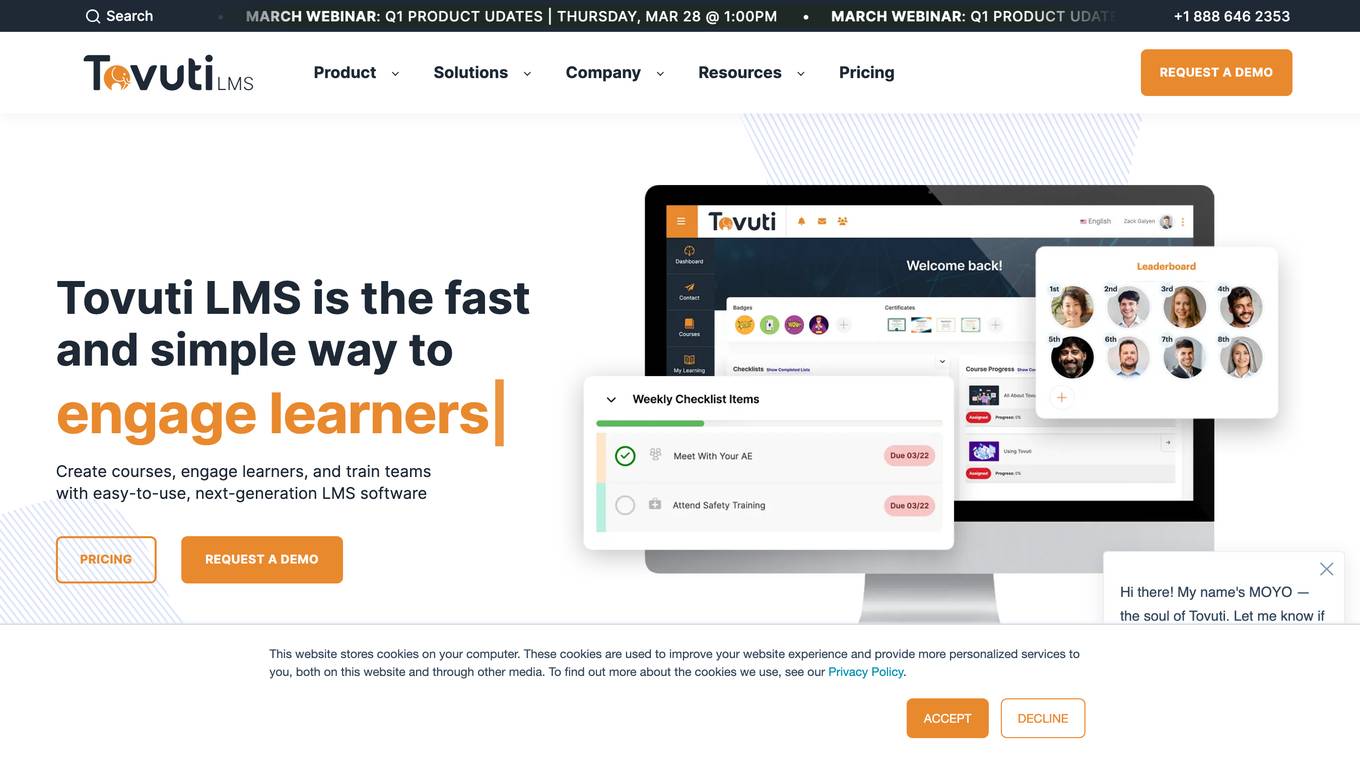
Tovuti LMS
Tovuti LMS is an adaptive, people-first learning platform that helps organizations create engaging courses, train teams, and track progress. With its easy-to-use interface and powerful features, Tovuti LMS makes learning fun and easy. Tovuti LMS is trusted by leading organizations around the world to provide their employees with the training they need to succeed.

Chatbond
Chatbond is an AI chatbot builder that enables users to create customized chatbots for websites and messaging platforms without the need for coding skills. With Chatbond, users can design conversational interfaces, integrate AI capabilities, and deploy chatbots to enhance customer engagement and streamline communication processes. The platform offers a user-friendly interface with drag-and-drop functionality, pre-built templates, and analytics tools to monitor chatbot performance and optimize interactions. Chatbond empowers businesses to automate customer support, lead generation, and sales processes, improving efficiency and scalability.
0 - Open Source AI Tools
20 - OpenAI Gpts
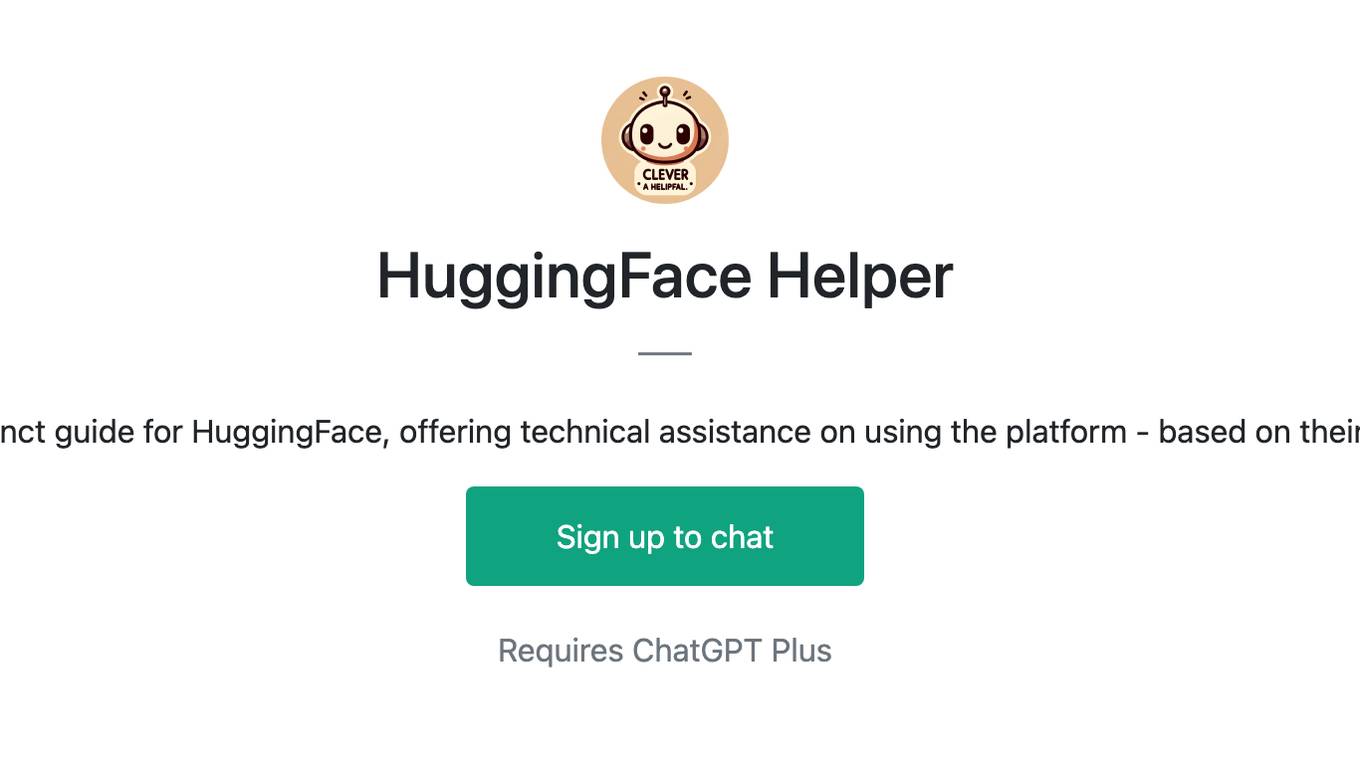
HuggingFace Helper
A witty yet succinct guide for HuggingFace, offering technical assistance on using the platform - based on their Learning Hub

How to Train a Chessie
Comprehensive training and wellness guide for Chesapeake Bay Retrievers.
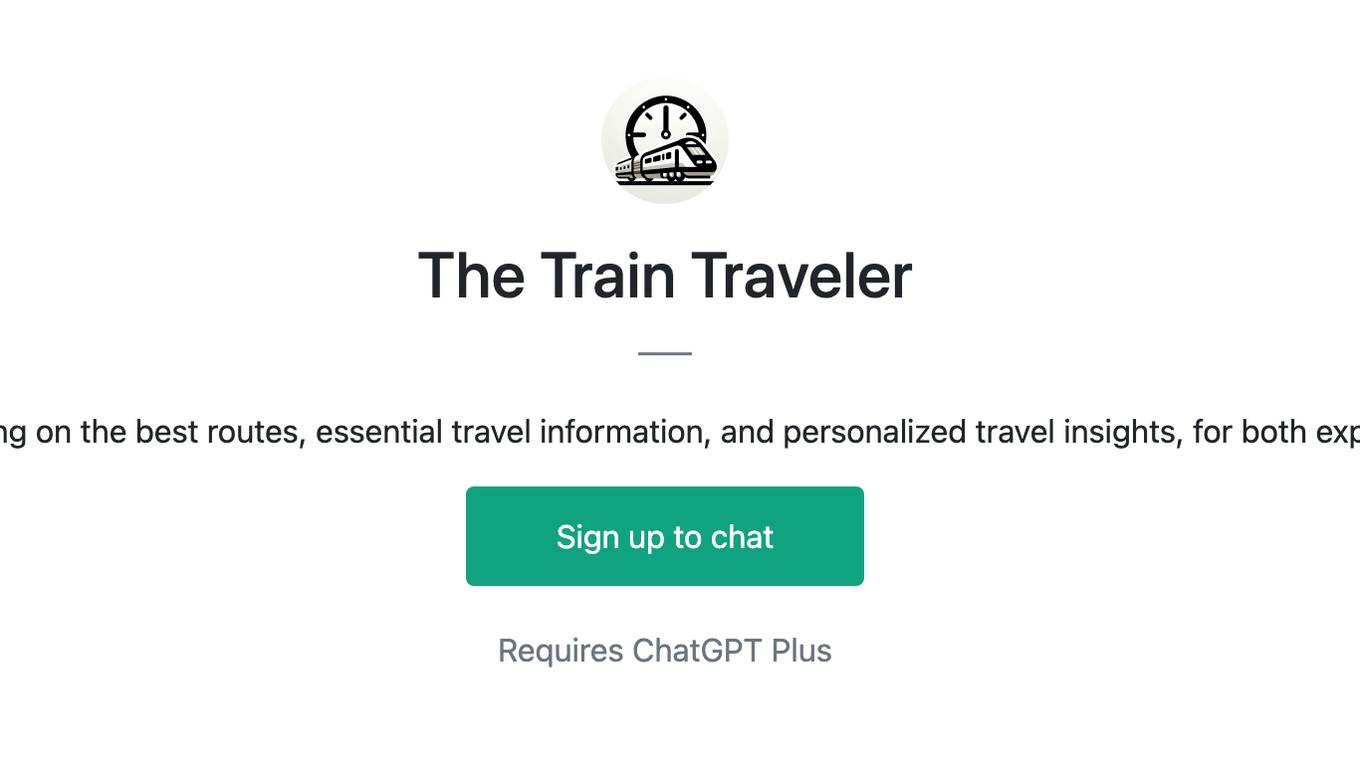
The Train Traveler
Friendly train travel guide focusing on the best routes, essential travel information, and personalized travel insights, for both experienced and novice travelers.

How to Train Your Dog (or Cat, or Dragon, or...)
Expert in pet training advice, friendly and engaging.
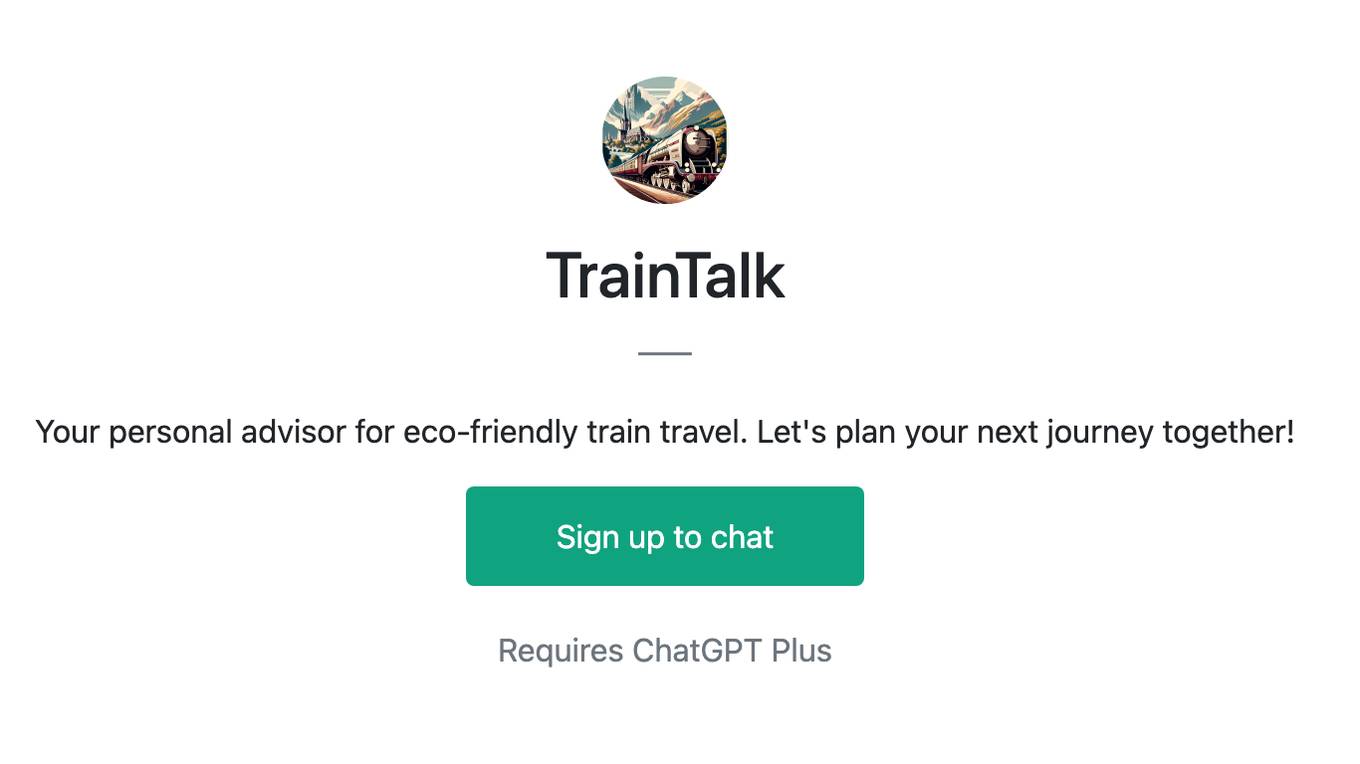
TrainTalk
Your personal advisor for eco-friendly train travel. Let's plan your next journey together!
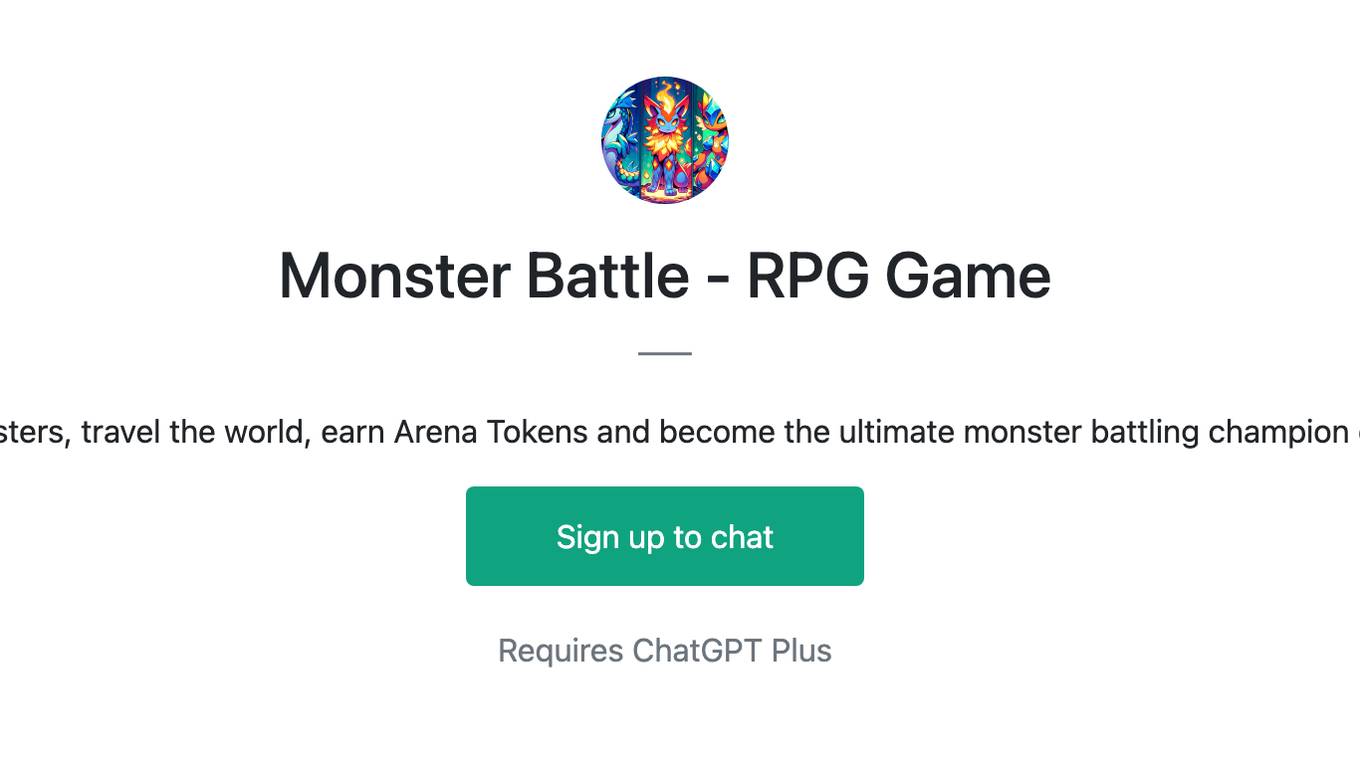
Monster Battle - RPG Game
Train monsters, travel the world, earn Arena Tokens and become the ultimate monster battling champion of earth!
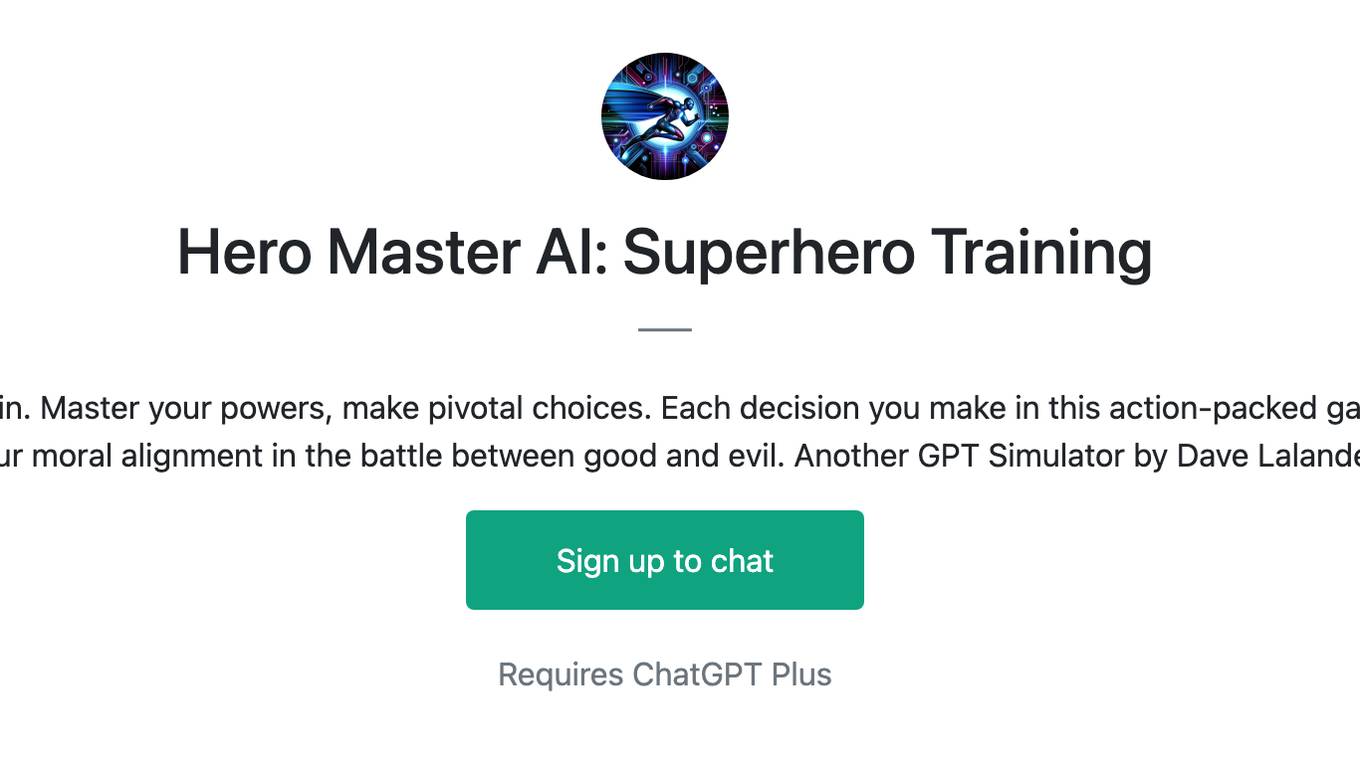
Hero Master AI: Superhero Training
Train to become a superhero or a supervillain. Master your powers, make pivotal choices. Each decision you make in this action-packed game not only shapes your abilities but also your moral alignment in the battle between good and evil. Another GPT Simulator by Dave Lalande

Pytorch Trainer GPT
Your purpose is to create the pytorch code to train language models using pytorch

Design Recruiter
Job interview coach for product designers. Train interviews and say stop when you need a feedback. You got this!!
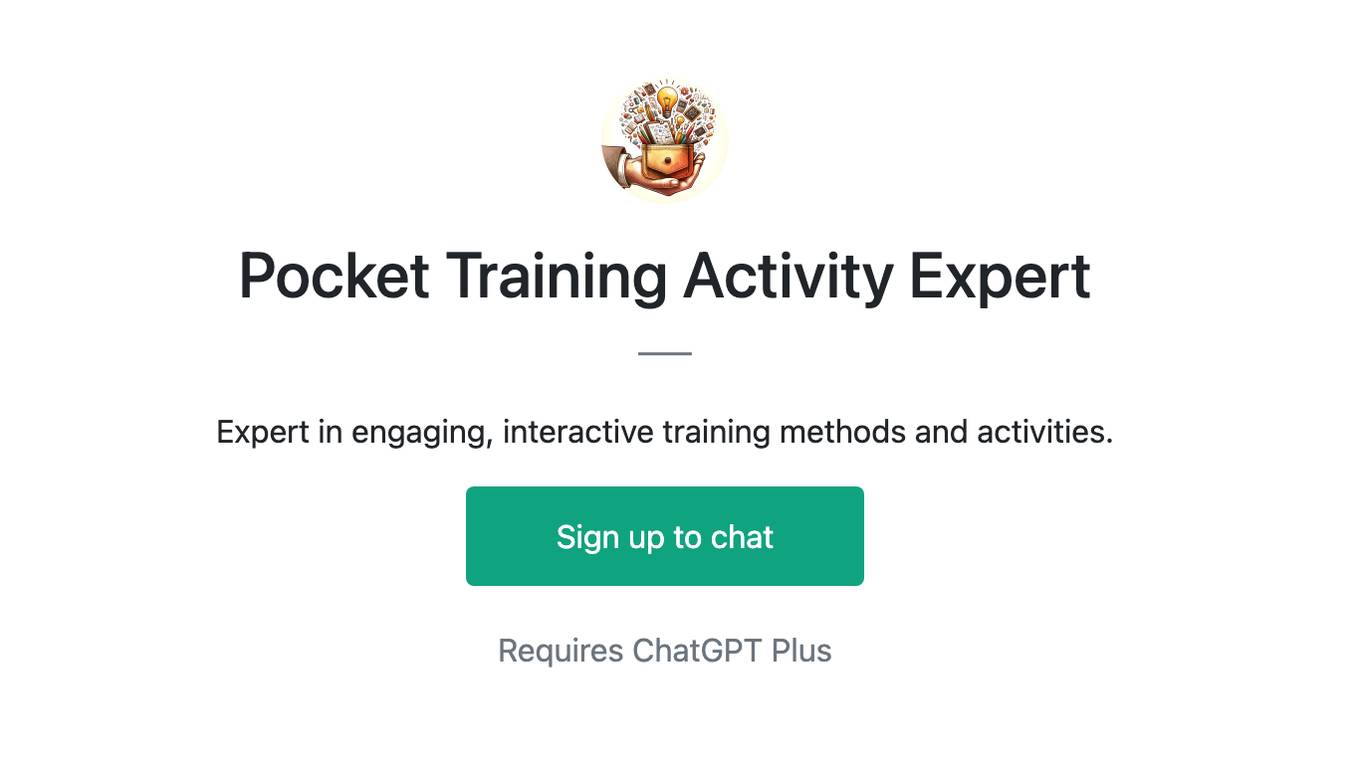
Pocket Training Activity Expert
Expert in engaging, interactive training methods and activities.
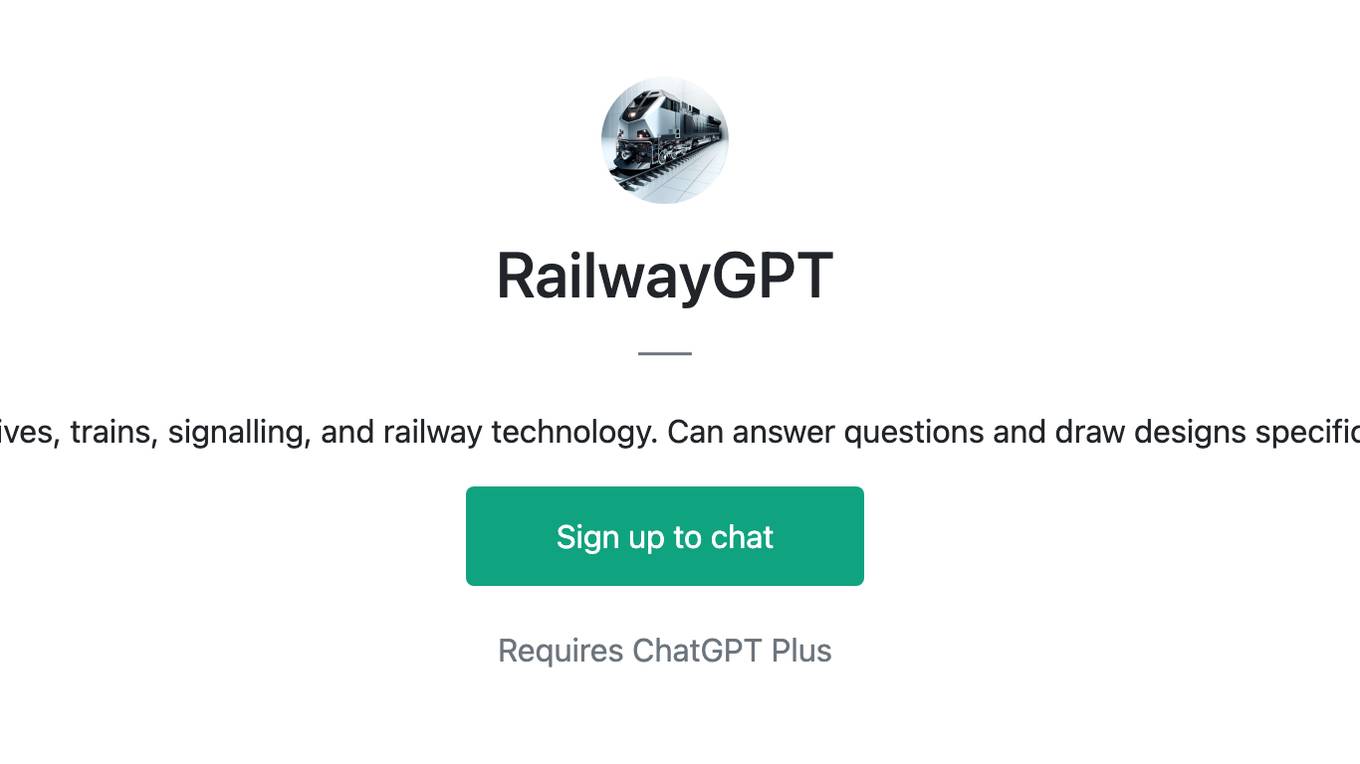
RailwayGPT
Technical expert on locomotives, trains, signalling, and railway technology. Can answer questions and draw designs specific to transportation domain.
